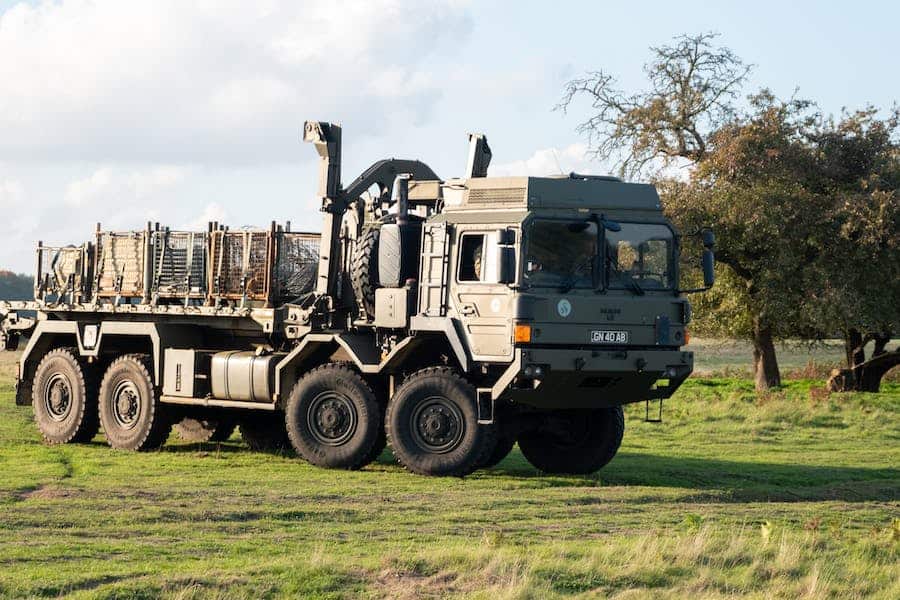When you picture an armored truck, it’s often easy to imagine scenes of high-stakes heists from movies, where valiant drivers face grave dangers while protecting vast sums of money. It’s a world of risk, intrigue, and high tension. These drivers, who literally transport millions in cash, valuable assets, or other precious items, surely ought to be compensated handsomely for such a perilous job, right? Surprisingly, the answer isn’t what most expect. Despite the inherent risks associated with their profession, armored truck drivers often receive a paycheck that many believe isn’t commensurate with the hazards they face. Why is there such a stark contrast between the perceived value of their role and the reality of their earnings? As we dive deeper into the armored transport industry, the reasons behind this wage discrepancy become both complex and multifaceted. From economic dynamics to industry practices and even societal perceptions, numerous factors play a part in determining the wages of these guardians of our valuables. Join us as we unravel this paradox and shed light on the reasons why those who protect significant assets often find their own wallets lighter than expected.
Why Do Armored Truck Drivers Get Paid So Little?
Armored truck drivers often receive salaries that may seem low, given the perceived risks of their job. Several factors contribute to this: the supply of willing drivers, industry profit margins, broader economic dynamics, and training costs. Additionally, while the job has its dangers, the frequency of high-risk situations (like heists) is relatively rare, which can affect wage perception. Balancing these factors, the industry arrives at the current compensation levels for these drivers.
Important Facts About Armored Truck Driving
Armored truck driving is a profession surrounded by intrigue and misconceptions, primarily due to its representation in popular culture. Here, we aim to debunk some myths and present important facts about this unique line of work.
- Nature Of The Job: At its core, armored truck driving involves transporting cash, precious metals, valuable artifacts, and sometimes even sensitive documents between locations. This could be between banks, ATMs, retail businesses, or other institutions that require the secure movement of valuables.
- Safety Is Paramount: Armored trucks are designed with the latest technology to ensure maximum security. They’re not just regular trucks with metal plating; they’re equipped with advanced security systems, reinforced shells, and bulletproof glass to safeguard both the cargo and the crew.
- Risks Involved: Contrary to popular belief, high-octane heists involving armored trucks, as shown in movies, are relatively rare. However, the job is not without its dangers. Drivers and guards must remain vigilant against potential threats, and situations can escalate quickly if a criminal element targets the vehicle.
- Training And Qualifications: To become an armored truck driver, one doesn’t merely need a driver’s license. Prospective drivers undergo rigorous training. This includes defensive driving, security protocols, and sometimes even first aid or combat training. Furthermore, background checks are stringent, ensuring that those responsible for millions in assets are trustworthy.
- Compensation Discrepancies: As previously discussed, there’s a perception that armored truck drivers aren’t compensated adequately for the risks they undertake. Several factors contribute to this wage structure, including the supply of willing drivers, industry economics, and the actual frequency of high-risk situations.
- Team Effort: An armored truck typically operates with a team. While one person drives, the other, often referred to as the “hopper” or “messenger,” is responsible for collecting and delivering valuables. Both individuals are trained to handle unexpected threats or emergencies.
- Varying Shifts: Just like many other professions, the hours can be long and may vary. Some routes require early morning pickups, while others might necessitate late-night drops. Depending on the needs of their clients, drivers must be flexible with their schedules.
- Regulations And Standards: The armored transportation industry is heavily regulated. Vehicles are routinely inspected to ensure they meet safety and security standards. Similarly, drivers and guards undergo periodic reviews and training sessions to remain updated on best practices.
- Lifespan Of An Armored Truck: These vehicles are built to last. With proper maintenance, an armored truck can remain in service for many years. However, given the wear and tear and the constant technological advancements in security, companies tend to retire and replace their fleets regularly to ensure optimum safety.
- Not Just About Cash: While many associate armored trucks solely with cash transportation, they’re also vital for other sectors. Museums, for instance, may use armored transport for valuable artifacts. Similarly, important documents or data, which could be catastrophic if they fell into the wrong hands, are also transported securely using these vehicles.
The Main Reasons Armored Truck Drivers Get Paid So Little
Armored truck drivers, often imagined as the courageous guardians of our monetary assets, surprisingly find themselves at the center of a wage paradox. Despite the risks they undertake, their paychecks often seem modest. Delving into this apparent contradiction, several core reasons emerge:
Supply And Demand Dynamics:
The armored truck driving profession often doesn’t require a specialized degree, meaning the barrier to entry is relatively low. As a result, there’s a significant pool of potential drivers. This abundance in supply, in the face of a steady demand, can exert a downward pressure on wages.
Perceived Vs. Actual Risk:
Hollywood might have us believe that every armored truck is a heist target, but actual high-risk confrontations are rarer than one might think. While the job is undoubtedly riskier than many, the frequency of genuinely life-threatening situations doesn’t match the popular perception, influencing wage determination.
Industry Economics:
The armored transport industry operates on tight margins. With the costs of vehicle maintenance, insurance, and security measures, companies might argue there’s limited flexibility in the wage structure.
Limited Union Power:
In some regions or companies, the lack of strong labor unions means drivers may not have the collective bargaining power to negotiate for better wages, benefits, or working conditions. Strong unions can often push for better compensation, reflecting the risks and responsibilities of the job.
Technological Innovations:
With advancements in security tech, companies are continually looking for ways to minimize human risk. This includes better CCTV monitoring, advanced alarm systems, and automated processes. As reliance on these technologies grows, companies might feel that the human element (and thus the associated risk) is reduced, which can impact wages.
Standardized Training:
While armored truck drivers undergo specific training, these programs are often standardized and can be completed in relatively short timeframes. This means that drivers can be trained and onboarded quickly, further increasing the supply of potential employees.
Comparative Job Analysis:
When setting wages, companies often look at comparable jobs in the market. If other positions with perceived similar risk profiles or responsibilities (like security guards or standard truck drivers) have lower wages, it sets a precedent that can be hard to break.
Economic Pressures:
In economic downturns, non-essential services often see cuts, affecting the armored truck industry’s clientele. With reduced demand and increased economic pressure, wages can stagnate or even decrease.
What Trucking Jobs Make The Most Money?
Trucking is an industry that’s as vast as the open roads drivers traverse. While many assume all trucking jobs are created equal, there’s a wide disparity in pay scales depending on the type of trucking, the cargo being hauled, and the risks involved. If you’re considering a career in trucking or looking to pivot within the industry, here are some of the highest-paying trucking jobs:
- Ice Road Truckers: The thrill and danger of driving on icy roads, especially in regions like Alaska, come with a premium salary. These truckers face extreme weather conditions, isolated routes, and the ever-present risk of ice cracking beneath them. Their compensation often reflects these challenges.
- Oversized Load Haulers: Transporting oversized loads, such as construction machinery or wind turbine blades, requires specialized skills. Maneuvering with such a large cargo is challenging and often requires additional permits and escorts. As a result, these haulers earn a hefty paycheck.
- Hazmat Drivers: Truckers who transport hazardous materials (Hazmat) need special certifications. Whether it’s flammable liquids, toxic materials, or other dangerous goods, the risks associated with potential spills or accidents justify the higher wages.
- Tanker Drivers: Hauling liquids, especially if they’re hazardous, like certain chemicals or gases, requires a specific skill set. Ensuring the safe transport of these materials, given their propensity to move or change states, is a challenge, and the pay reflects that.
- Mining Industry Truckers: Drivers who work in the mining industry, especially in remote areas, can command a higher salary. The rugged terrains, long hours, and isolation of some mining sites increase the job’s complexity.
- Team Drivers: In these setups, two drivers alternate shifts to keep the truck moving almost continuously. This arrangement is especially lucrative on long-haul journeys where delivery time is a priority.
- Owner-Operators: Truckers who own their trucks and run their operations can often earn significantly more than company drivers. However, they also bear the brunt of expenses, from maintenance to insurance. The net income, though, can be considerably higher if managed effectively.
- Specialized Freight Drivers: Transporting specialized cargo, such as luxury cars, electronics, or art, can be lucrative. These items are high-value and require extra care during loading, transport, and unloading.
Wrapping Up
In conclusion, the compensation of armored truck drivers, when juxtaposed against the perceived risks and responsibilities of their role, seems puzzling at first glance. However, delving deeper reveals a complex interplay of factors, from supply and demand dynamics to industry economics and the gap between perceived versus actual risks. While the job undoubtedly carries inherent dangers, the frequency of truly high-risk events is lower than popular culture might suggest. Combined with the industry’s tight margins and the relative ease of entry into the profession, wages remain modest. Advocacy for better compensation is essential, but understanding these intricacies is key to framing the discourse effectively.
FAQ’s
Q: Is The Money In Armored Trucks Insured?
A: Yes, the money transported in armored trucks is insured. The companies operating these vehicles carry robust insurance policies that cover the cash and valuables inside against theft, damage, and other potential risks.
Q: How Often Do Armored Money Trucks Get Robbed?
A: While armored money trucks are a target due to the valuable contents they transport, actual robberies are relatively rare, especially when compared to other types of crimes. This is because armored trucks are designed to be highly secure, and the companies operating them implement stringent safety protocols. Additionally, the potential penalties for attempting to rob an armored vehicle, combined with the high likelihood of getting caught, deter many potential criminals. However, the exact frequency can vary depending on the region and local circumstances.
Q: What Are Armored Car Drivers Called?
A: Armored car drivers are often referred to as “security drivers” or “armored couriers.” They may also be called “armed guards” when they have the responsibility of guarding the vehicle and its contents in addition to driving. Their primary role is to safely transport cash and other valuables, but they are also trained to handle emergency situations and potential threats.



















Leave a Reply